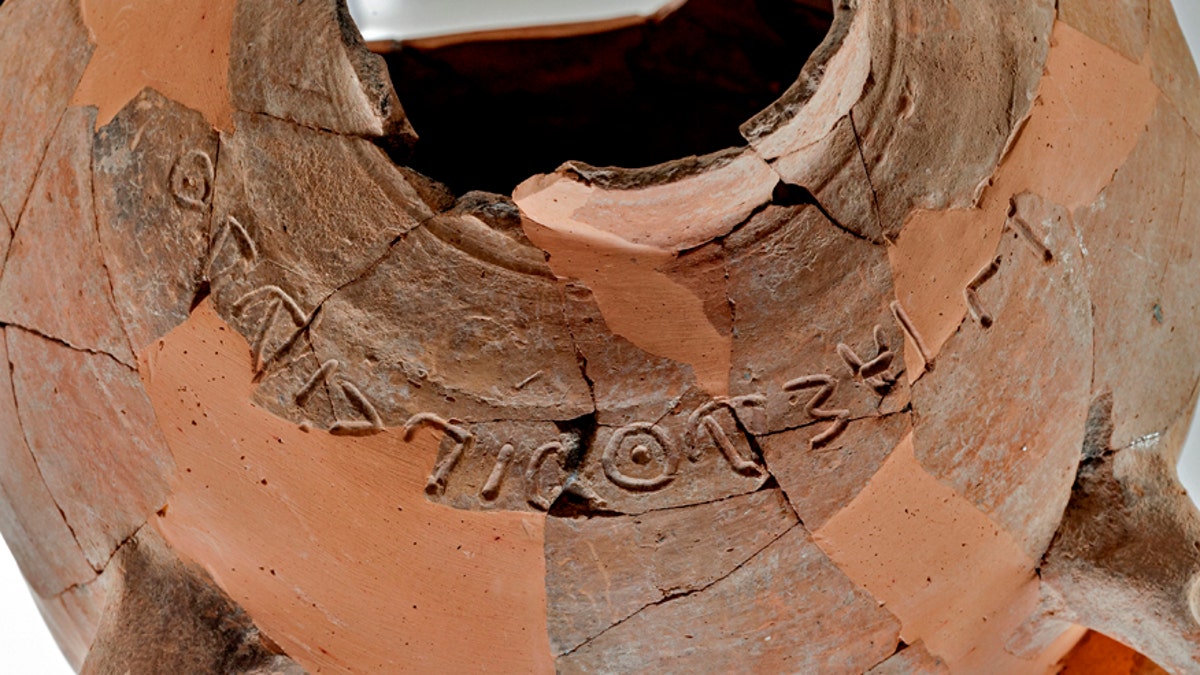
The inscription. (Copyright:talrphoto Tal Rogovsky)
A mysterious inscription from the time of King David provides a fascinating glimpse into the past, the Israel Antiquities Authority announced on Tuesday.
The inscription was discovered at Khirbet Qeiyafa, in the valley of Elah southwest of Jerusalem. A ceramic jar around 3,000 years old that was broken into numerous shards was discovered in 2012. Researchers were fascinated by letters written in Canaanite script that could be seen on a number of the shards.
Extensive restoration work was conducted in the laboratories of the Israel Antiquities Authority Artifacts Treatment Department, during which hundreds of pottery shards were glued together to form a whole jar. Researchers then discovered the inscription “Eshba’al Ben Beda’.”
The inscription suggests that Eshba’al Ben Beda was an important person. Ben Beda was apparently the owner of a large agricultural estate, according to the Israel Antiquities Authority, which says that produce from the estate was packed and transported in jars that bore his name. “This is clear evidence of social stratification and the creation of an established economic class that occurred at the time of the formation of the Kingdom of Judah,” it said, in a statement.
The name Eshba’al was reminiscent of the Canaanite storm god Ba’al, according to researchers, and the inscription marks a unique find in Israel.
“This is the first time that the name Eshbaʽal has appeared on an ancient inscription in the country,” said Professor Yosef Garfinkel of the Hebrew University of Jerusalem and Saar Ganor of the Israel Antiquities Authority, in the statement. “It is interesting to note that the name Eshbaʽal appears in the Bible, and now also in the archaeological record, only during the reign of King David.”
